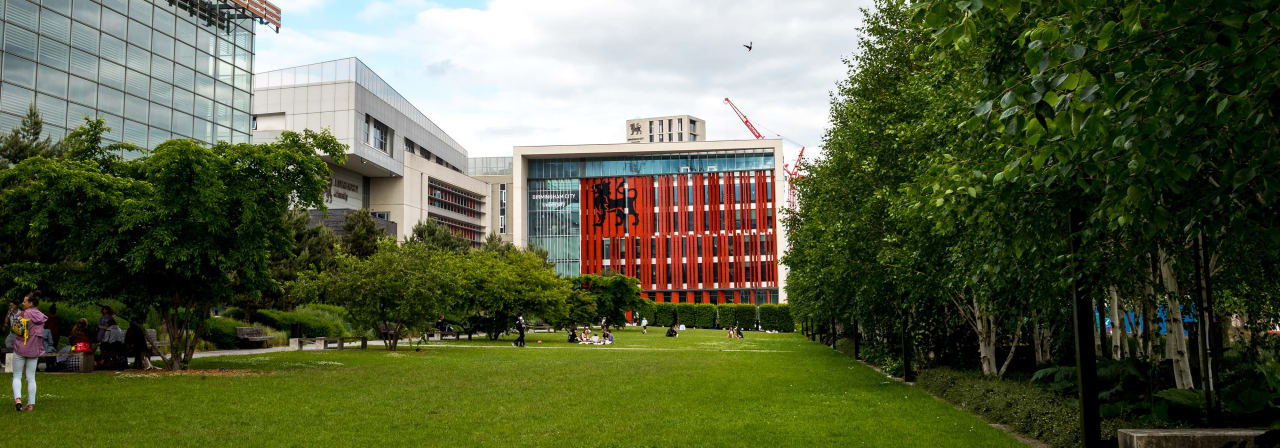
Bachelor in Biomedical Engineering
Birmingham City University

Key Information
Campus location
Birmingham, United Kingdom
Languages
English
Study format
On-Campus
Duration
3 years
Pace
Full time
Tuition fees
GBP 9,250 / per year *
Application deadline
Request Info
Earliest start date
Sep 2024
* UK students: £9,250 per year | international students: £13,980 per year
Scholarships
Explore scholarship opportunities to help fund your studies
Introduction
Are you interested in engineering that interacts with the human body? Our practice-led Biomedical Engineering degree explores mathematics, anatomy, physiology and computing to meet the rapid advancement in technology which is becoming a vital part of healthcare. Throughout this programme, you will have the option to carry out exciting work placements in the UK and abroad.
What's covered in this course?
Our unique Biomedical Engineering degree programme will provide you with the skills and expertise needed to work in specialist areas such as assistive technology, rehabilitation, medical imaging and robotics, physiology monitoring, cardiopulmonary engineering, m-health and e-health, orthopaedic implants and regenerative medicine/ tissue engineering.
Biomedical Engineering (also known as bioengineering) is a discipline of engineering that interacts with the human body. You will be developing and applying innovative skills in the design, manufacturing and maintenance of medical equipment and devices covering all spectrums from the newborn to assistive living for the elderly. Industrial-led practical workshops and labs will help enhance your technical skills. This will enable you to relate ‘real-life’ commercial innovations to the underpinning academic theory learnt in the lectures.
Our state-of-the-art facilities will allow you to explore a variety of biomedical applications including sensing and measuring on micro and nano scales, personal health tracking, remote diagnosis and monitoring, and biomaterials to name a few. The knowledge acquired will then enable you to engage in exciting projects such as designing prostheses or devising new medical technology for physicians and medical professionals to be used in the prognosis, diagnosis and treatment of patients.
Along with these technical skills, as an engineer, you will also gain a diverse range of transferrable skills, including effective communication, leadership, the ability to critically assess gaps in target healthcare markets, and the tools required to provide solutions to bridge those gaps.
The programme is currently in the progression of accreditation by the Institution of Engineering and Technology (IET).
Why choose us?
- Explore the multi-disciplinary of a career in Biomedical Engineering - you’ll have access to the excellent facilities on both our health and engineering campuses. Giving you the benefits of both disciplines in regard to resources and a range of academics
- 93% of BEng students were satisfied with the teaching in this course (NSS 2022)
- We’ve invested £71 million in our City South Campus - featuring specialist labs and over £250,000 worth of new equipment
- Small tutorial classes to allow for in-depth opportunities to develop your skills and receive constructive feedback
- Student support - we provide you with a personal tutor to support you in achieving your learning goals
- Get work experience abroad - you can apply for a travel scholarship as part of our Go Abroad scheme to carry out exciting work placements overseas
Gallery
Curriculum
Year One
In order to complete this course a student must successfully complete all the following core modules (totalling 120 credits):
- Engineering Principles 1
- Mathematical Modelling 1
- Engineering Principles 2
- Engineering Practice
- Mathematical Modelling 2
- Human Anatomy and Physiology for Biomedical Engineering
Year Two
In order to complete this course a student must successfully complete all the following core modules (totalling 120 credits):
- Mathematics for Signals and Systems
- Analogue and Digital Electronics
- Engineering Electronic Systems
- Research Methods in Science and Engineering
- Introduction to Medical Physics in Biomedical Engineering
- Medical Instrumentation and Measurements
Year Three
In order to complete this course a student must successfully complete at least 120 credits from the following list of core modules.
- Individual Research Project
- Biomechanics for Biomedical Engineers
- Biomaterials and Tissue Engineering
- Medical Devices and Equipment Life Cycle
- Medical Image Processing
Career Opportunities
Enhancing your employability skills
We'll develop you into a work-ready graduate. By undertaking suitable elective/optional placement opportunities, you'll gain a greater understanding of the causes and mechanisms underlying health, ageing and disease. This will allow you to collaboratively support the design and delivery of healthcare technology and or medical devices within a clinical or industrial setting.
You may also have invaluable opportunities to test and demonstrate new electro-mechanical models and tools for health and care delivery.
Placements
You may have the chance to undertake valuable work placements, either in the UK or internationally. This could be done in a local hospital, a manufacturing company or in another relevant sector.